Two years after escaping Kabul, Afghans in Columbus strive for stability
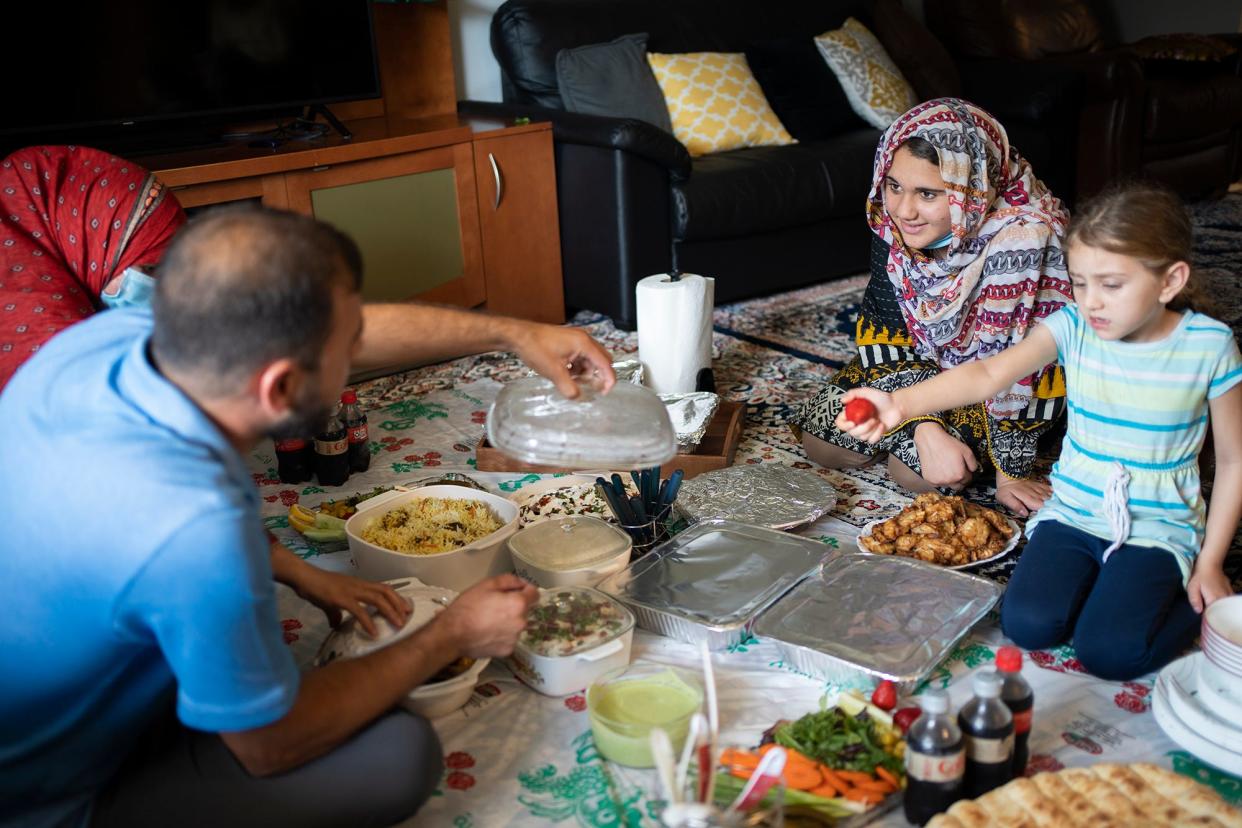
While Ali is cleaning carpets or replacing light bulbs in classrooms at Ohio State University, his mind is on Afghanistan.
Ali works for the university’s maintenance crew, but for nine years, in his past life back home, he removed landmines on a team that collaborated closely with U.S. Special Forces.
“We saved thousands and thousands of Afghan and American lives,” he told The Dispatch in Dari, one of two official languages of Afghanistan, through a translator.
Ali, who is now 35, got out on one of the last flights out of Kabul after the Taliban overran the country in the lead-up to the U.S. withdrawal two years ago today. He spent eight and a half months in Dubai before coming to the U.S. under the humanitarian parole program — a stopgap measure short of full refugee status that was used to admit the majority of cases under Operation Allies Welcome in 2021.
Ali’s parole status is temporary, expiring two years from his entry. It allows him to work, but not to apply to bring his wife and seven children — including a son born after he left — to the U.S. They were unable to leave Afghanistan with him, and he worries constantly about their safety — especially since four of his former colleagues were murdered after the Taliban takeover, he said. (“Ali” is a pseudonym; he requested anonymity for this article to protect his family.)
“Deep in my heart I’m thankful for… all the people I've met in Columbus,” Ali said. “(But) I want to send my message to the leaders in the US: we were your allies in Afghanistan. We considered you our brothers and served you in the most honest way we could. But you didn’t do your duty towards us, because we were left behind.”
There are over 8 million Afghan refugees in the world today, including over 77,000 in the U.S. admitted under humanitarian parole. Around 500 Afghan families were resettled in Greater Columbus, and dozens more families came here after initial resettlement elsewhere in the U.S., according to staff at Community Refugee & Immigration Services (CRIS), a resettlement agency.
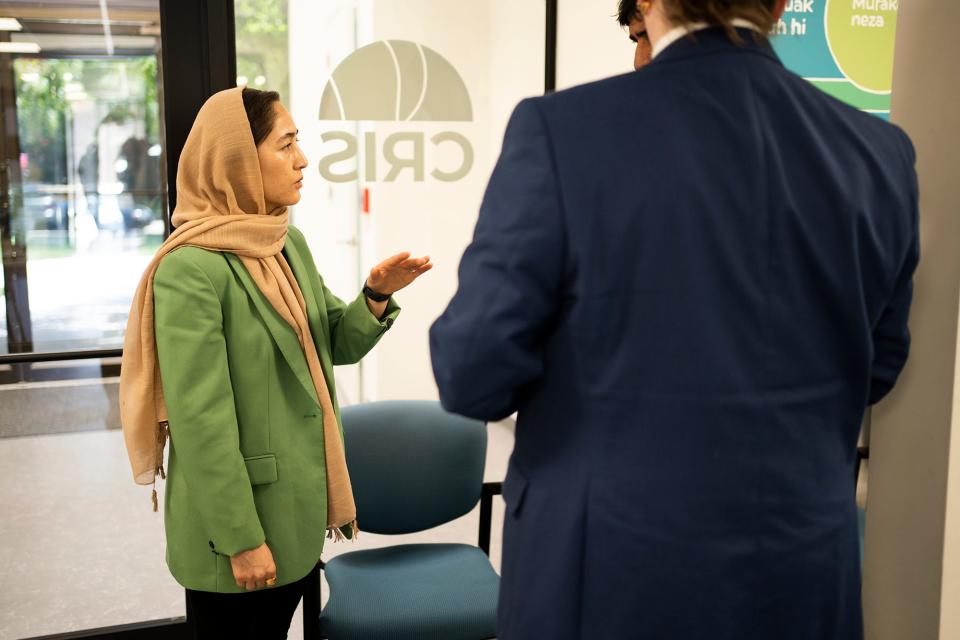
Since arriving, Afghans have overcome hurdles in finding work and affordable housing, enrolling their children in school, learning bus routes and how to drive a car, and navigating a new culture. But many say their foremost challenge lies with the U.S. government — which, two years on, hasn’t yet granted most Afghan parolees permanent immigration status.
“It means a lot to have permanent status,” said Naseer Durrani, 30, a former journalist and Afghan government employee who now works for a real estate company in Columbus. “If you have documents … you can settle more, you can have businesses, and you can integrate.”
Bipartisan legislation currently in Congress, titled the Afghan Adjustment Act, would provide a pathway to citizenship for Afghans.
However, the bill has been held up for over a year without a vote.
Some opponents say they are concerned about national security, saying that Afghan parolees were not vetted thoroughly enough before they entered the country. Proponents counter that the Act would provide the additional vetting necessary, and passing it is important to avoid deporting allies.
Ohio’s Democratic Sen. Sherrod Brown supports the bill. Republican Sen. J.D. Vance’s office declined to answer The Dispatch’s questions about his stance on the legislation.
Two years in America
Many Afghan parolees have stories of a perilous escape two years ago, braving crowds of tens of thousands and surviving a suicide bombing as they entered Kabul International Airport.
Seddiqa Qassemi, now 31, was a secretary at the U.S. Agency for International Development in Kabul. The agency arranged a bus for her and her colleagues to get to the airport, but she had to leave her parents and all her belongings behind.
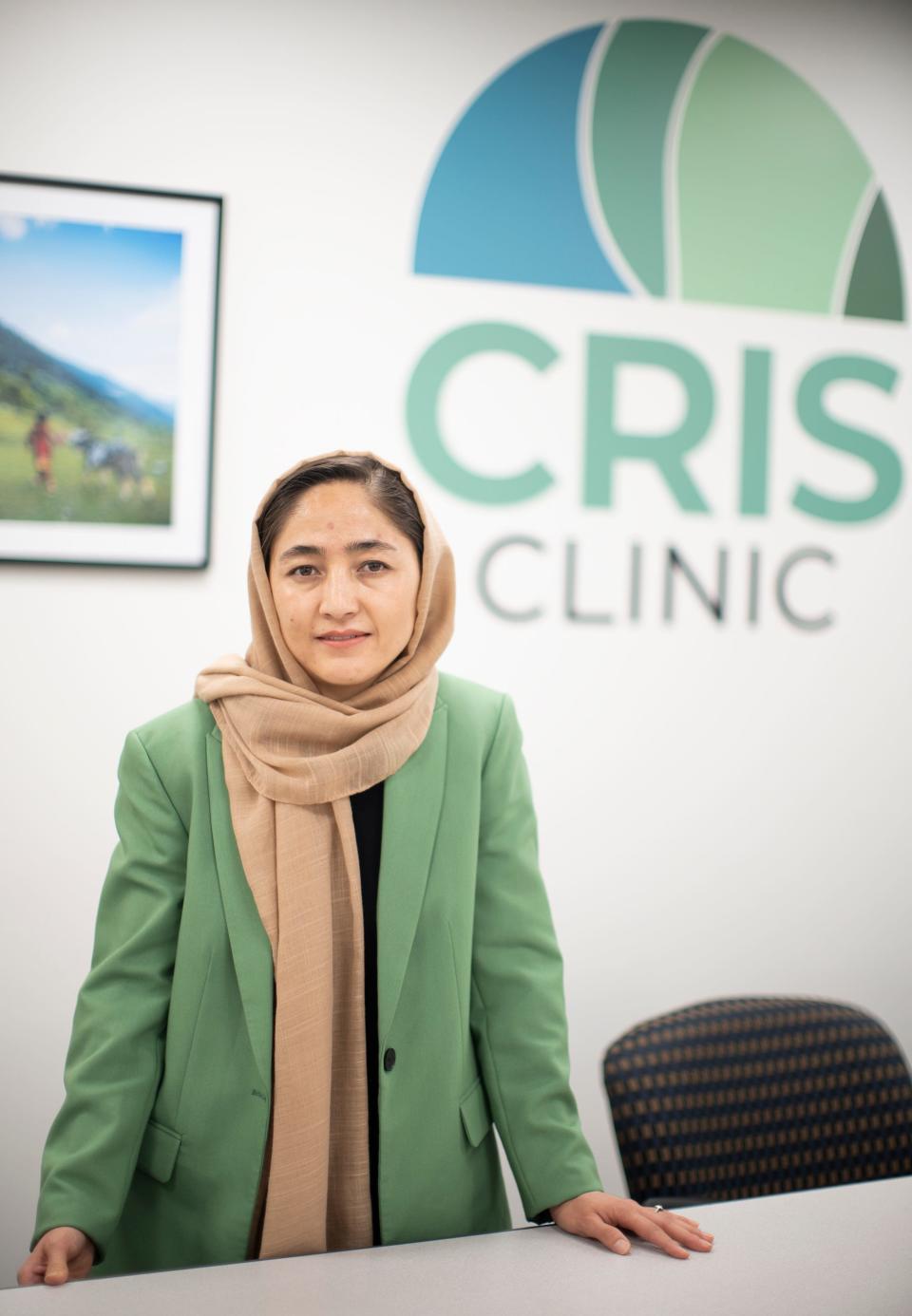
“I was mad, because I lost everything — my family and my country. I was angry at the U.S. — how they could leave us behind? And I was also mad at my government. … We heard that the provinces of Afghanistan were being handed over to the Taliban without any fight,” said Qassemi, who is now a paralegal at CRIS.
Upon arriving in the U.S., Afghan parolees initially spent weeks, and in some cases months, on military bases. When they were allowed to move, resettlement agencies provided services like employment counseling and subsidized housing, but most federal support for the parolees ended — as it does for refugees — after three months.
Fazlullah Mashwani, 36, a former U.S. military translator and Afghan special forces member, first arrived with his family of five at Fort Dix, New Jersey. They then moved into a moldy home in the city of Patterson whose basement flooded soon after their arrival. The family had to move apartments five more times, he said, and Mashwani struggled to earn money as an Uber Eats and DoorDash deliveryman.
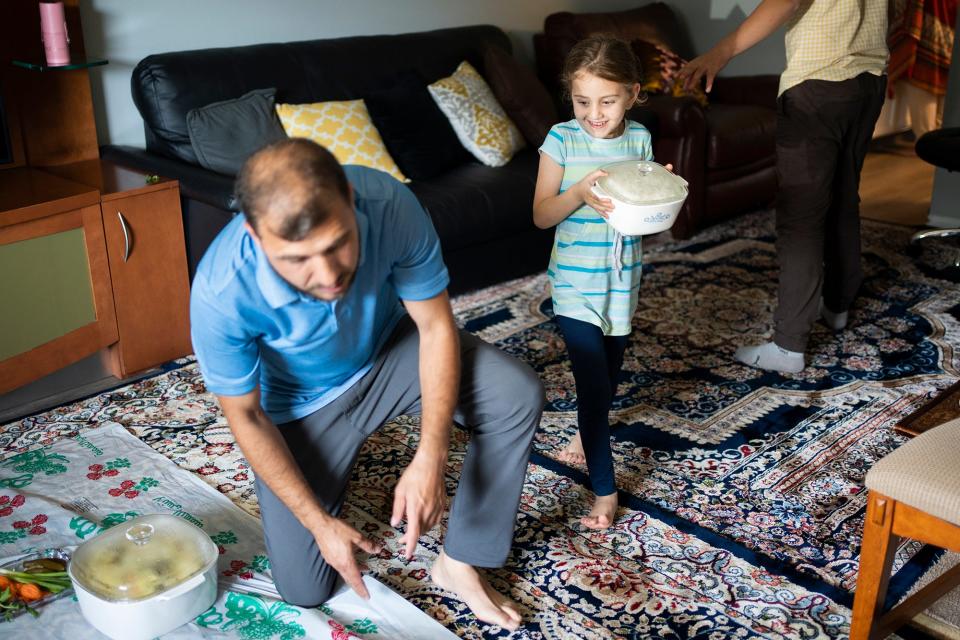
“That was a terrible nine or 10 months — a new place and you don't know anyone, it’s a different culture. … It was very hard,” he said.
After hearing Columbus was cheaper and had a decades-old Afghan community of several thousand families, Mashwani moved here last year and now works at CRIS as an employment counselor.
His wife Salma Mashwani, a homemaker, said their three children are enrolled in Columbus City Schools and are adjusting fast, but miss their cousins and friends from their old private school back in Jalalabad, Afghanistan.
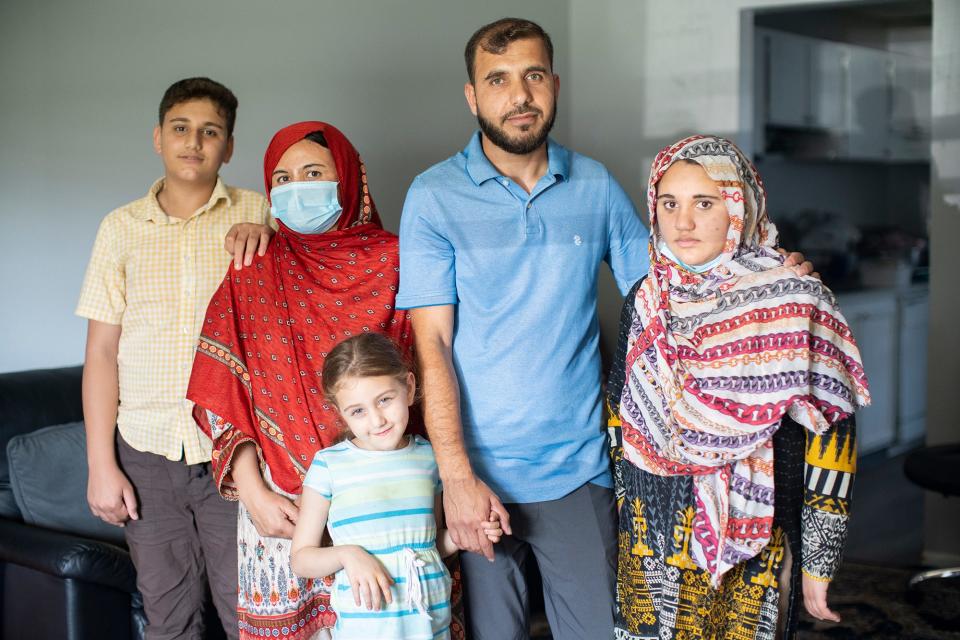
Afghans in Columbus are doing a variety of work, from nonprofits to the service industry, distribution centers and manufacturing, according to CRIS staff. Major employers include Walmart and Hope Timber Pallet & Recycling, which buses workers out to its facility in Newark. Many Afghans’ salaries are quickly spent on rent, food, children’s needs, and money orders for family back home.
Afghan women are also increasingly working outside the home — something that in Afghanistan is now banned by the Taliban, along with female education.
Sajida Saafi, 29, who is Durrani’s wife, teaches English through CRIS to more than 30 Afghan women, five of whom have jobs (besides caring for their families). Working outside the home is a major cultural adjustment for them, Saafi said, but they get used to it, just like using a washing machine or driving one's own car — luxuries that were uncommon back home.

The Afghan Adjustment Act
In contrast to refugees, who can apply for a green card a year after being admitted to the U.S., Afghan humanitarian parolees have no easy path to permanent residency. Their humanitarian parole is temporary; many parolees’ two-year status expires in the coming weeks and months, and they must apply to re-parole on a case-by-case basis.
The short-term nature of their status makes it very difficult to get a home mortgage or a loan to start a business. In some cases, employers are reluctant to hire humanitarian parolees, even though they have work authorization, according to CRIS.
Parolees’ options for permanency in U.S. are currently limited to the asylum system and the Special Immigrant Visa. The latter is only for those who directly assisted the U.S. military or government; most journalists, aid workers, human rights activists and others must apply for asylum.
Both systems are backlogged, but the asylum system is notoriously so. Vincent Wells, an immigration attorney at CRIS, said that of his roughly 350 Afghan cases, only a third have been able to get permanent status — and almost all came through the S.I.V. program. Only one client has been granted asylum.
Wells said his S.I.V. applicants who performed the most dangerous work alongside Americans — like Ali, who cleared landmines — often have to wait the longest for the government to make a decision because of extensive background checks.
“The ones that were working with weapons, with US armed forces — you’d think that they would be prioritized. …It’s ironic,” Wells said.
The Afghan Adjustment Act is modeled on previous legislation that gave a pathway to citizenship for Cubans in the 1960s and Southeast Asians in the 1970s. It would provide a path to permanent status for Afghan evacuees and would provide $20 million per year to the Department of Homeland Security to coordinate extensive interviews and vetting processes on par with other refugees admitted to the country.
The Senate version of the bill was introduced by Sen. Amy Klobuchar (D-Minn.) with five Republican and five Democratic co-sponsors.
It also received support from three former chairmen of the joint chiefs of staff and the supreme allied commander of NATO. They signed a December letter stating, in part, “As military professionals, it was and remains our duty to prepare for future conflicts. We assure you that in any such conflict, potential allies will remember what happens now with our Afghan allies.”
Ohio’s Sen. Brown said he supports the bill because it “will provide those who stood with American soldiers with the stability and support to prosper in the United States.”
Sen. Vance’s office declined to answer questions about the bill, but the senator raised concerns about admitting Afghans to the U.S. in 2021, in the midst of the U.S. withdrawal and his own election campaign.
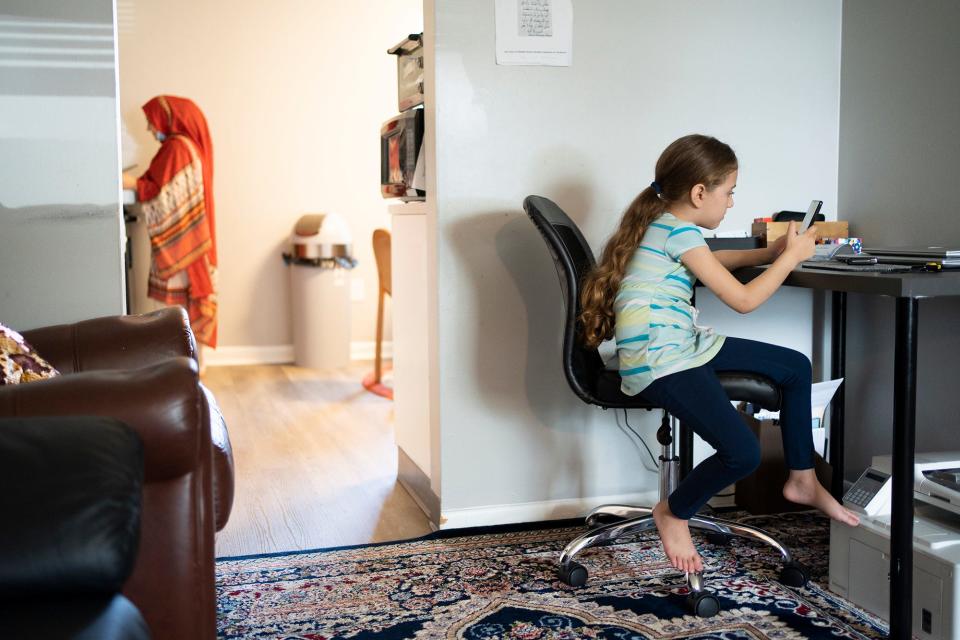
Last year, the Department of Homeland Security Inspector General released a report that found some Afghans were paroled into the U.S. without proper vetting after they were evacuated from Kabul to transit points in the Middle East and Europe. The report found two individuals who were paroled but who posed national security concerns; both were later apprehended by authorities.
Wells, the immigration attorney, said that the additional vetting provided for under the Afghan Adjustment Act should allay skeptics’ concerns.
“If the concern is making sure that we have the right people here, then (they) should be on board with it, because that provides the vetting and the additional safety measures that they are looking for. If it's not about safety — if it's that (they) just don't want Afghans here — then that's something that we can't fix,” he said.
For Ali, the issue is personal.
He said he calls his family in Afghanistan every day. When his children ask when they will see him again, he doesn’t know what to say: their arrival depends on his getting permanent status, so he can apply for them.
“My wife is so patient, and she supports me a lot, but sometimes she gets frustrated,” Ali said. “She asks, ‘Why aren’t (the Americans) sticking up for you?’”
Peter Gill covers immigration, new American communities and religion for The Dispatch in partnership with Report for America. You can support work like his with a tax-deductible donation to Report for America at: bit.ly/3fNsGaZ.
pgill@dispatch.com
Get more political analysis by listening to the Ohio Politics Explained podcast
This article originally appeared on The Columbus Dispatch: Two years on, Afghan refugees in Columbus strive for stability

